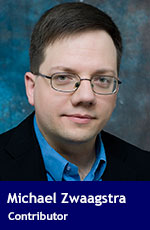 The primary responsibility of teachers’ unions is to represent their members. This includes advocating for better wages, opposing unfair working conditions and ensuring that all teachers receive due process when their jobs are in jeopardy. Obviously, these are the very basic issues.
The primary responsibility of teachers’ unions is to represent their members. This includes advocating for better wages, opposing unfair working conditions and ensuring that all teachers receive due process when their jobs are in jeopardy. Obviously, these are the very basic issues.
Unions can do something else that would be of immense benefit to their members and to the children they are responsible for: they can resist education fads.
Teachers across the country have seen more than their fair share of fads come and go. Open-air classrooms, individual learning styles, no-zero policies, discovery learning, 21st Century Skills and co-operative learning are but a few examples.
Being on the front lines of education, classroom teachers are asked to implement the latest fads. They get blamed when the fads crash and burn, as they so often do. In this way, the consultants and edu-gurus who came up with these fads avoid taking responsibility for their faulty ideas. Eventually, the fad is resurrected under a new name and the cycle begins again.
Unions can help break this cycle. This is what the Ontario Secondary School Teachers’ Federation (OSSTF) is trying to do. OSSTF recently sponsored researchED Ontario, a professional development conference organized by teachers for teachers. Unlike so many other professional development conferences, researchED encourages teachers to look at the evidence for themselves and to reject ideas that lack sufficient evidence of their effectiveness.
The keynote speaker at this conference was Dr. Daniel Willingham, a well-known cognitive psychologist from the University of Virginia. Willingham has written many books and articles about cognitive psychology and isn’t afraid to debunk many pervasive neuro-myths. In his presentation, Willingham explained how research findings should be translated for teachers. His key point was that, while there are many good ideas out there, they’re often lost in the clutter of bad ideas.
Conference participants also attended a number of breakout sessions. At one of these sessions, OSSTF president Harvey Bischof gave a presentation appropriately entitled, What is the union doing here? This was an important question because OSSTF is the first teachers’ union anywhere in the world to be the lead sponsor of a researchED conference.
While Bischof made it clear that his union will always remain focused on labour issues such as salaries and working conditions, he noted that his members want to do the best job with students that they possibly can. This means using effective techniques and not wasting time implementing ineffective fads. As he pointed out, teachers go into the profession because they want to teach and make a difference in the lives of their students. Helping teachers achieve this goal by resisting unsuccessful fads is a great way to improve teachers’ working conditions.
Bischof also informed the audience that OSSTF hopes to continue supporting conferences like researchED. In coming years, OSSTF intends to get more extensive background material to their members about education initiatives, establish a workshop on cognitive science in education, and create a report card on the workload implications and effectiveness of new initiatives. This is an ambitious agenda and it shows that OSSTF is serious about teaching and learning.
OSSTF’s willingness to take on some of the truly fruitless education fads is a refreshing contrast with the passive acceptance or even active promotion of fads by other Canadian teachers’ unions. As a case in point, the Alberta Teachers Association has been an enthusiastic supporter of the province’s wholesale adoption of the 21st Century Skills fad, which prioritizes so-called generic critical thinking skills and de-emphasizes content knowledge.
Contrary to what 21st Century Skills advocates claim, content knowledge is far from obsolete. In fact, subject-specific content knowledge is essential for reading comprehension and, not surprisingly, for critical thinking. For example, while it’s true that information is easily accessible on the Internet, it’s equally true that good teaching is about much more than showing students how to look things up online. Teachers must still pass along a defined body of knowledge to their students.
The best way for unions to remain relevant in the 21st century and beyond is to advocate for effective teaching methods. Effective teaching benefits students, society, teachers and unions alike.
Other Canadian teachers’ unions should follow OSSTF’s example and help teachers fight back against the many unproductive education fads that are continually foisted on them.
Michael Zwaagstra is a senior fellow with the Frontier Centre for Public Policy and a public high school teacher.
The views, opinions and positions expressed by columnists and contributors are the author’s alone. They do not inherently or expressly reflect the views, opinions and/or positions of our publication.


